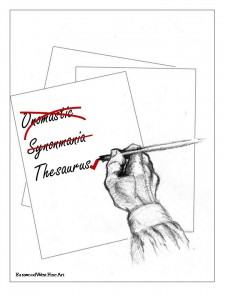Royal Gossip
Posted in General, On This Day on January 18th, 2010 by Eugene Finerman – 7 CommentsJanuary 18, 1486: How the Tudors Got Their Good Looks (even if they couldn’t keep them)
We all have the image of Henry VIII as that bloated bully in the Holbein portrait. Either fat had a higher aesthetic value in the 16th century or those English courtiers assured the tempermental King that he looked wonderful. Fortunately, Henry was easily convinced of his good looks. When a middle-aged blob, he certainly was self-deluded but at least he had an excellent memory.
Henry VIII was not born looking like Charles Laughton. The young king actually was handsome, a gift from his mother Elizabeth of York. She was a beauty, the gift of her parents: Edward IV and Elizabeth Woodville. They were regarded as the best-looking people in England! Elizabeth Woodville had to be a beauty; to have her, Edward IV caused a civil war.
She was a widow, with children, and only from the minor nobility; worse, her late husband and her family had been supporters of the rival Lancastrian dynasty. The lusty Edward IV wanted her as a mistress; she refused his advances and insisted on marriage. At that very time, Edward had commissioned his chief supporter, the Earl of Warwick, to negotiate a marriage with the sister-in-law of the King of France. Warwick, the most powerful noble in England, had successfully negotiated that marital alliance when he learned that Edward had eloped with the Woodville widow. “The Kingmaker”, as Warwick was known, was humiliated and furious; he then switched his allegiance and considerable forces to the Lancasters. Warwick succeeded in ousting Edward and restored Henry VI to the throne in 1470. A year later, Edward returned. Warwick was killed in battle and Henry VI was imprisoned in the Tower of London. The deposed King apparently fell on several daggers while in chapel.
In any case, handsome Edward IV and beautiful Elizabeth Woodville produced seven children. (He also acquired a pack of greedy in-laws and two stepsons who could have been role models for Paris Hilton.) Edward died in 1483, thinking his young son Edward would succeed him. Unfortunately, the regent of England was Richard, Duke of Gloucester. Although the late King’s brother, he had always resented the Woodville queen and her upstart family. Uncle Richard had other plans.
And the war over Elizabeth Woodville so divided the Yorkist party that the illegitimate Welsh branch of the Lancastrian line would soon kill its way to the throne. When the illegitimate half-second cousin, once removed, Henry Tudor ascended to the throne, he required a legitimate princess for some resemblance to respectability. The eldest daughter of Edward IV sufficed quite nicely, and today is their wedding anniversary.
p.s. And let’s not forget this birthday: https://finermanworks.com/your_rda_of_irony/2009/01/18/adjective-orgy/
